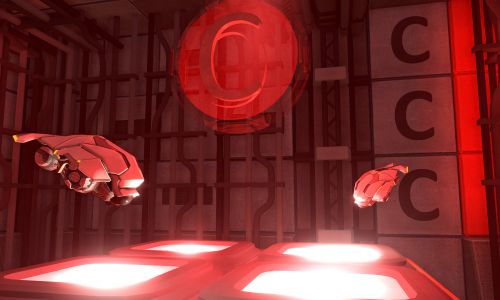
Co-op isn’t just casual multiplayer gaming. Good co-op enables players to share in their achievements. Players who might ordinarily give up when a level causes them stress can be encouraged by the presence of a friend. They might learn strategies from the presence of a more experienced player, or even ride on their shoulders a bit to explore the game’s story. We found groups of players who bought Sol Survivor in packs of four for the sole purpose of playing our hardest Survival levels in co-op.
Good co-op also allows players to express themselves through their play style to their friends. In Sol Survivor, we found players enjoyed defeating difficult levels in co-op just as much as they enjoyed the process of selecting their weapon loadouts and customizing their approach. Though the possibility space was somewhat limited, players felt able to express themselves through game mechanics. (For the record, I’m a missile silo guy myself, in Sol Survivor.)
All of these lessons from Sol Survivor are consistent with the experiences we at Cadenza have shared as gamers. Our epic nights of Borderlands gave us all a challenge while letting us express ourselves socially within the framework of the game. It was fascinating to watch one of our programmers explode into melee aggression while another took up arms from the rear, healing and shielding the team as we needed it. We weren’t just playing the Borderlands single player with more people around for better loot, we were creating a cohesive team that played on real-life social dynamics.
Indie Devs and Co-Op Sittin’ in a Tree...
Indie developers like to groan. We gripe about having to eat instant ramen. We whine about our lack of manpower and funding compared to big studios. Yet, we don’t often stop and think about what strengths there are in being small. Independent studios are, by their nature, risky business. There’s freedom to be had in embracing that fact. Indie games can risk small amounts of money (relative to the industry juggernauts) to explore niches in gaming that might have some fertile ground hidden within.

Indie studios can harness this more exploratory culture to pursue all sorts of things. In the opinion of this designer, the best indie success stories have come from games which give players robust choices. Choices lead to experimentation and emergent play as players express themselves within the limits of the game. Co-op gaming can make choices more interesting, when the choices players make result in true interactivity.
The instinct gamers have to express themselves digitally has driven many indie games into the spotlight. Magicka exploded because of the emergent properties of its spellcasting in co-op. Part of Minecraft’s success is in giving players an easily understood set of rules and letting the players define their world. Big studios can do co-op too, but indie studios are well positioned to explore co-op’s experimental side. The entire games industry is about innovation, but indies thrive or die by it.
Innovation helps give a game presence. Gaming culture is quickly jaded, and novelty is the surest way to create a good game. Sharing novel experiences via co-op helps to magnify levels of interest surrounding a game. If a game adds something to the general gaming conversation, success is bound to follow. The conversation surrounding co-op gaming isn’t loud enough yet. Developers with the time and freedom to explore it might find themselves as pleasantly surprised as we were with Sol Survivor.